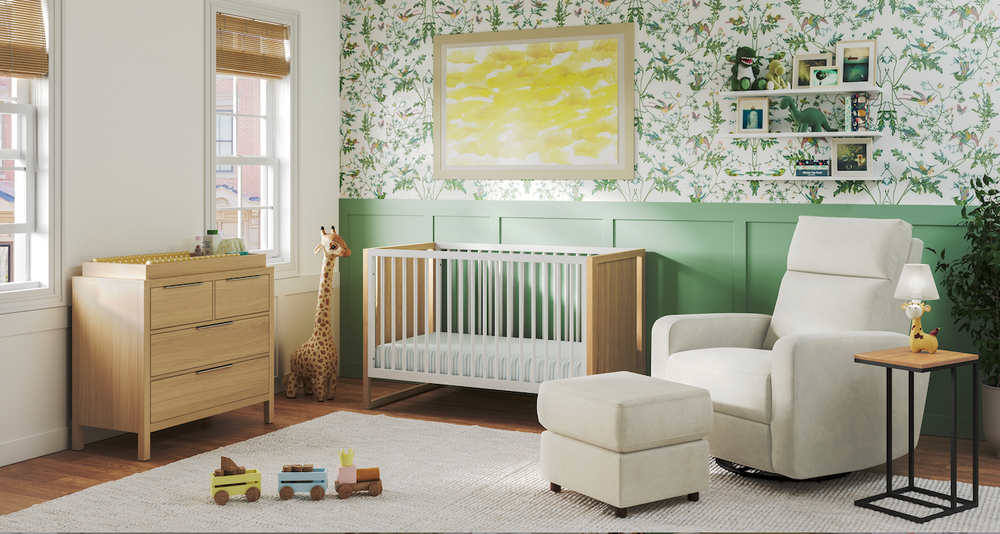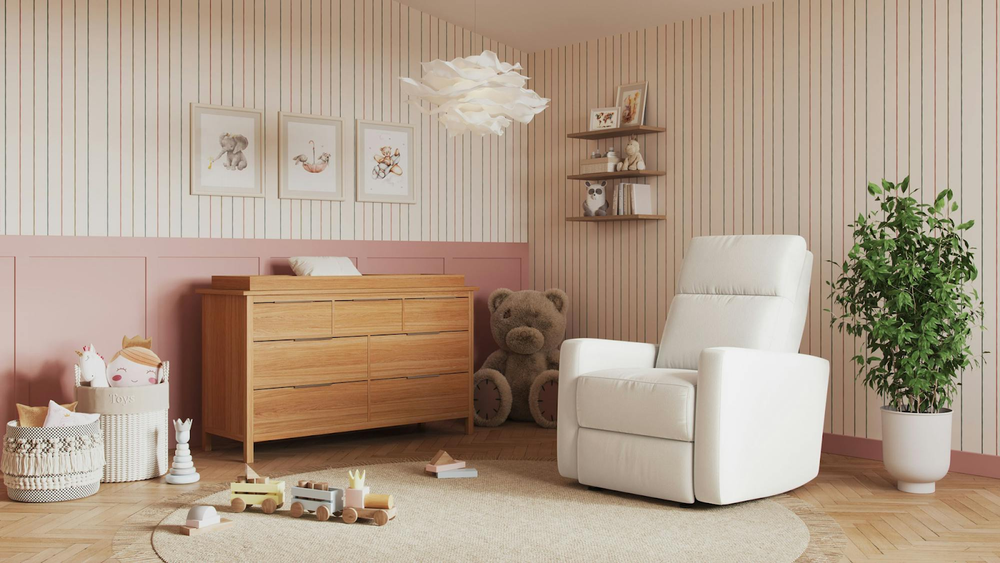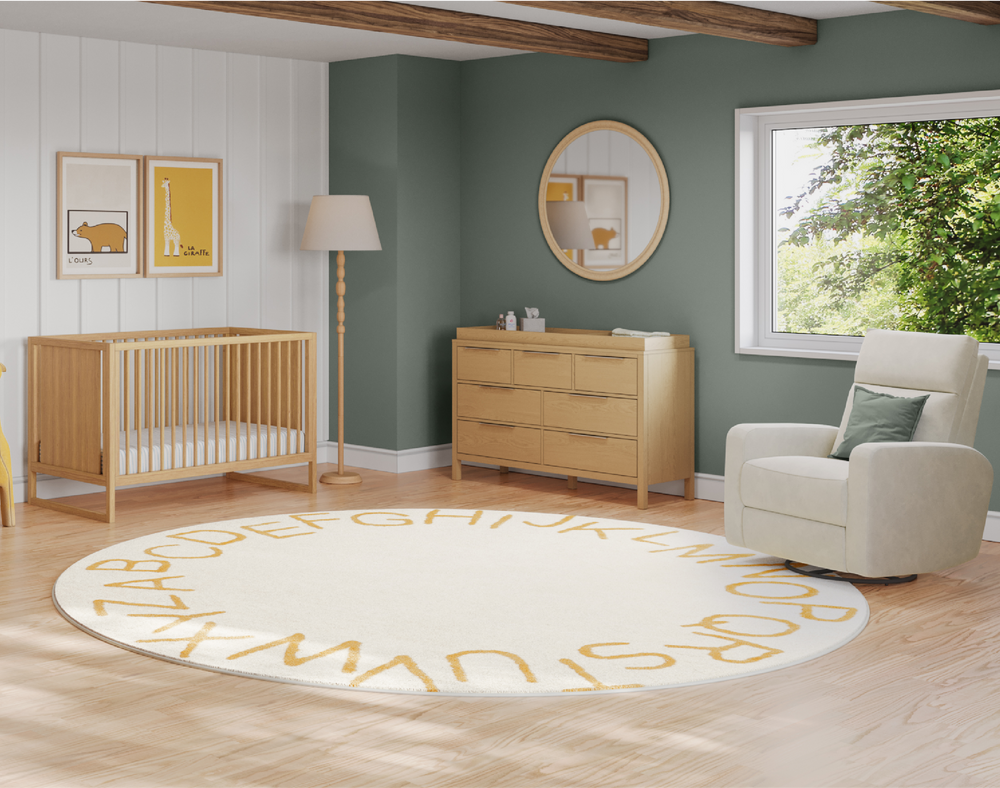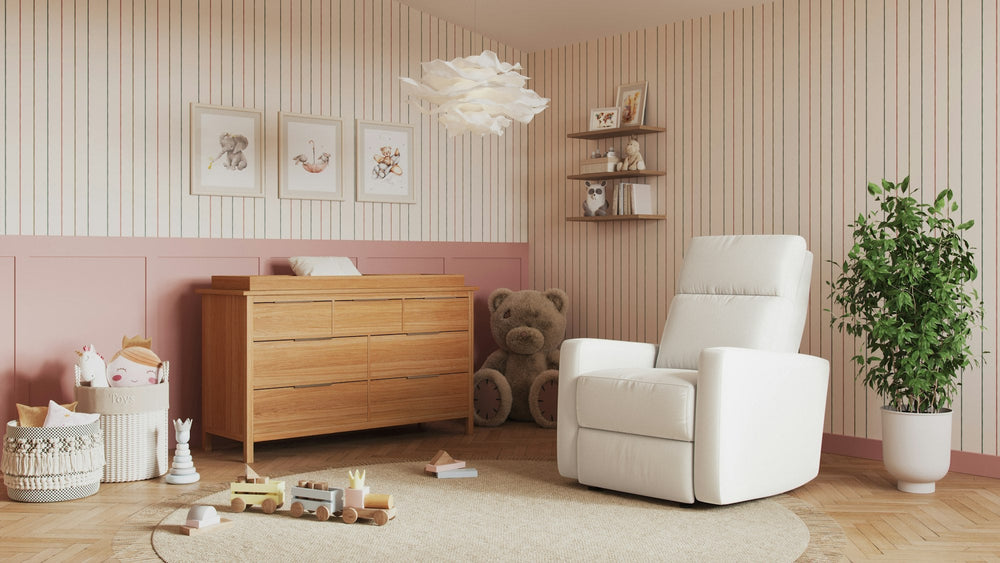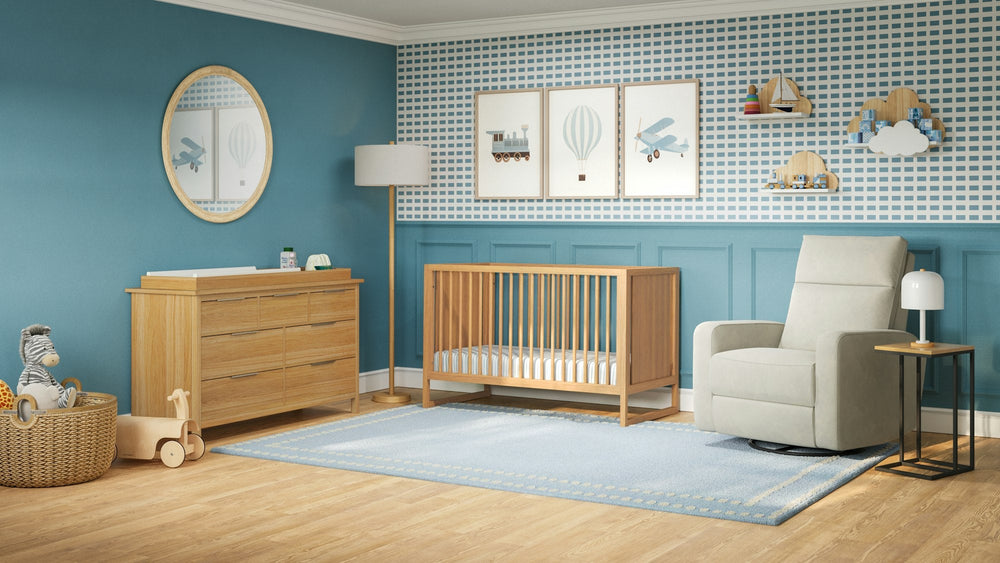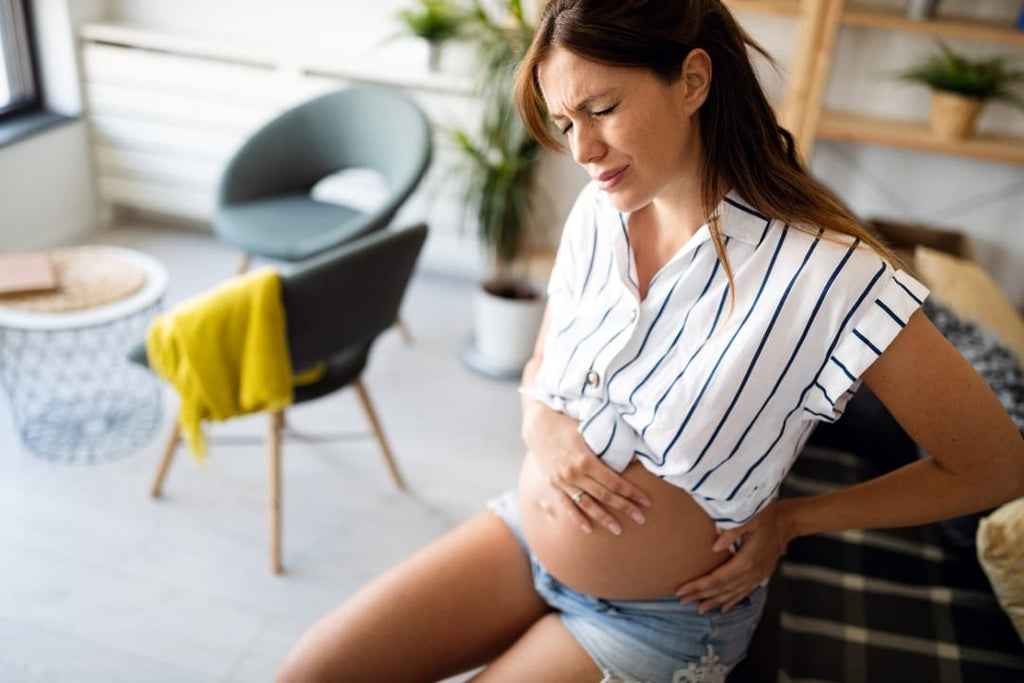
Pregnancy brings a host of new symptoms, hormonal fluctuations, aches, and pains, and it can be challenging to decipher what is an expected pregnancy symptom and what needs medical attention.
From cramps and backaches to acid reflux and swollen ankles, pregnancy changes and affects the body, and it starts right away!
So how can you tell the difference between harmless gas and bloating and cramping, which could be a sign of a miscarriage? This article breaks down the types of cramping, what they feel like, and when to call a doctor to help answer all your questions and alleviate any concerns.
How Normal is Cramping During Pregnancy?
No two pregnancies are the same, and pregnant women often have questions about the various symptoms they experience. One of the biggest concerns pregnant women have, particularly in early pregnancy, is cramping and spotting.
Cramping is a fairly normal experience throughout pregnancy, especially during the first and third trimesters.
Experiencing light cramping and spotting during the early weeks of pregnancy is very normal. In fact, one of the early signs of pregnancy is implantation cramping. Early pregnancy cramping is usually short-lived, but if it lingers and pain persists, it could indicate an ectopic pregnancy or miscarriage.
You may also experience cramping in your late second trimester and throughout your third trimester from Braxton Hicks contractions.
Cramps during pregnancy may also be caused by constipation, gas, acid reflux, indigestion, back spasms, placental abruption, morning sickness, and many other pregnancy-related conditions.
If at any point during your pregnancy you experience pain that lingers or worsens, or abdominal cramping with bright, red blood, you should call your healthcare provider.
While thoughts of cramps and bleeding can be worrisome, to help put you at ease, we broke down the different types of cramping you might experience and what they may indicate.
Pregnancy Cramps During the First Trimester
Cramps are a common occurrence during pregnancy and are usually not reason for alarm, however it can bring peace of mind to understand the common causes and reasons for cramping. Below are outlined the most common reasons for cramping during the first trimester and warning signs of when a call to the doctor is necessary.
Implantation Bleeding
Many women experience light bleeding and cramping at the very start of their pregnancy, called implantation bleeding. These early pregnancy cramps are caused when the fertilized egg attaches itself to the uterine wall. Many women mistake these cramps, especially when there is spotting, as menstrual cramps.
Ectopic pregnancy
An ectopic pregnancy occurs when the fertilized egg implants itself somewhere other than the uterus, most commonly in the fallopian tube. Unfortunately, an ectopic pregnancy cannot proceed normally and, if left untreated, could become life-threatening.
Warning signs of ectopic pregnancy include:
- A positive pregnancy test
- Severe abdominal or pelvic pain with vaginal bleeding
- Shoulder pain
- Lightheadedness or fainting
Gas and bloating
Gas and bloating are two benign causes of cramping and abdominal pain during pregnancy. Unfortunately, many women experience an uptick in gas during pregnancy due to the hormone progesterone coursing through their bodies. Additionally, if you are experiencing uncomfortable amounts of gas, the food you’re eating could be a contributing factor, and you may need to curb some of those cravings!

Doctors recommend avoiding FODMAP foods if you are having trouble with bloating and gas. Some FODMAP foods are:
- Apples
- Apricots
- Broccoli
- Cauliflower
- Mango
- Green Peas
- Mushrooms
- Onion
- Peaches
- Pears
- Watermelon
- Cherries
- Dairy products
- Wheat
Miscarriage
Miscarriage is defined as the loss of pregnancy before 20-weeks. It is estimated that a quarter of all pregnancies end in miscarriage, with only 10% of those being recognized pregnancies. Therefore, many women have a miscarriage without ever knowing they were pregnant. However, if you have a confirmed pregnancy, the loss of a baby can be devastating.
Signs of a miscarriage include:
- Vaginal bleeding or spotting
- Abdominal cramps, pain can vary from mild cramping to sharp pain.
- Back pain
- Pelvic pressure
- Passing of tissue or clot-like material from your vagina
Constipation
Constipation is a frequent and unfortunate pregnancy symptom and can cause cramps in the lower abdomen and stomach pain. Pregnancy hormones slow down your digestion. Slow digestion coupled with your growing baby and pressure on your uterus can lead to this unfortunate condition.
Drinking plenty of water and staying physically active can help ease constipation. Contact your physician if you are experiencing severe abdominal pain or notice blood or mucus in your stools.
Sexual intercourse
Having sex while pregnant is perfectly safe and will not harm your baby; however, you may experience mild cramping afterward. This is because during an orgasm your uterus contracts, so mild, brief cramping is a possibility.
If, however, the cramping doesn’t go away, or you notice bleeding, discharge, or have pain, you should contact your healthcare provider.
Urinary tract infection
UTIs are an unpleasant experience, and unfortunately, pregnancy makes you more susceptible to developing one. The good news is that UTIs are bacterial infections which means they can be treated quickly with antibiotics. However, you should always contact your doctor if you think you have a urinary tract infection because, left untreated, it could develop into a kidney infection.
Left untreated, a kidney infection could cause pregnancy complications such as preterm labor and low birth weight.
Signs of a UTI include:
- Pain, discomfort, or burning sensation when urinating
- Blood in your urine
- Pelvic pressure
- Pain in the lower back or abdomen
- Fever
- Frequent urination or feeling like you always need to go
- Discharge
If you suspect you have a UTI, there are over-the-counter test kits you can purchase at a local pharmacy; however, a urinary tract infection can only be cured and treated with medical care and antibiotics.
Pregnancy Cramps During the Second and Third Trimesters
As you enter your second and then third trimester of pregnancy, you are still liable to experience cramping from most of the conditions mentioned above. However, there are now some additional common causes that could be the culprit of your discomfort.
If you experience severe cramping, bright red, or heavy bleeding at any point, you should seek immediate medical advice.
Round ligament pain
Round ligament pain can begin as early as 10-12 weeks, but it is most common in the second and third trimesters. Round ligament pain feels like a sharp, brief jab in your lower abdomen or groin area. It happens as the ligaments in your pelvis stretch and thicken to accommodate your growing uterus.
Round ligament pain is usually felt when you quickly change positions, such as getting out of bed or standing up from a chair. The pain will usually go away after a period of rest.
Braxton Hicks contractions
Braxton Hicks contractions, also called false labor or practice contractions, are non-productive contractions you may experience towards the end of your second and throughout your third trimester, especially as you near your due date.
These contractions are not painful, but they can be uncomfortable. You will feel pressure in your abdomen, and they will happen irregularly. Braxton Hicks are more common in the evening, after a period of activity, or when you are dehydrated.
Tips to relieve Braxton Hicks are:
- Changing positions
- Going for a walk
- Taking a warm bath
- Drinking water
- Resting, particularly if you’ve been active all-day

If the contractions become regular, are accompanied by lower back pain, vaginal discharge, or bleeding, give your doctor a call.
Preterm labor
Preterm labor is active labor that occurs before 37-weeks pregnant. If you experience any preterm labor signs, you should contact your doctor immediately.
Preterm labor signs are:
- Vaginal spotting or bleeding
- Regular or frequent contractions (even if they are not painful)
- Abdominal cramps that feel similar to menstrual cramps or diarrhea
- A rush or trickle of fluid from your vagina
- A large amount of vaginal discharge
Placental abruption
Placental abruption is a rare but serious condition during which your placenta separates fully or partially from your uterine wall before the baby is born. If you experience any of the following symptoms, you should contact your doctor immediately.
Placental abruption signs:
- Sudden bleeding
- Severe pain in your back
- Leaking bloody amniotic fluid
- Frequent and painful contractions
Ovarian cyst
Many women have ovarian cysts and aren’t even aware of them, and they usually do not cause any problems during pregnancy. However, if an ovarian cyst ruptures or twists, it can cause unpleasant symptoms that warrant medical attention.
When a cyst ruptures, you may feel a sudden or severe pain or intermittent lower abdominal pain. It is also possible to develop a fever, feel faint and experience nausea.
Preeclampsia
Preeclampsia is another serious condition that can occur during pregnancy which requires immediate medical attention.
Preeclampsia usually develops after 20-weeks but can occur at any time during pregnancy; it is characterized by high blood pressure and signs of damage to other organs. If left untreated, preeclampsia can lead to pregnancy loss and loss of life for the mother.
Signs of preeclampsia:
- High blood pressure
- Severe headaches
- Changes in vision
- Nausea or vomiting
- Shortness of breath
- Decreased urination
Tips to Relieve Pregnancy Cramps
How you relieve your pregnancy cramps will be determined by what’s causing them. Once you’ve ruled out any serious or life-threatening causes, you can try some of these tips to relieve discomfort.
Movement
Movement can often help relieve cramps, especially ones caused by gas or constipation. Try going for a walk, bouncing on an exercise ball, or engaging in some gentle yoga or stretches. Stretching and bending towards the pain can help alleviate it in some cases.

Take a Warm Bath or Shower
Relaxing in a warm bath or taking a warm shower can relieve all types of aches and pains. Additionally, swimming can relieve some of the pressure you may be feeling, especially during the third trimester.
Drink Fluids
Dehydration is one of the main reasons Braxton Hicks contractions occur, so keep a bottle of water nearby and sip on it all day long. Staying hydrated also helps prevent constipation. If you are experiencing Braxton Hicks contractions try lying down to alleviate them.
Use a Belly Band or Back Brace
If you are suffering from round ligament pain or sciatic pain, a belly band or a back brace can help alleviate some of the pain. These devices offer additional support to take some of the pressure off your pelvis, abdomen, and back.
While there are many things you can do at home to relieve minor aches and pains related to pregnancy and cramping, you should call your doctor if you notice all of the following signs.
- Severe lower abdominal pain
- A decrease in urination along with an increase in thirst
- Headaches and a constant blurred vision
- Fever or chills
- Pain in your lower abdomen followed by heavy bleeding
- Blood in your stool
- A sense of burning during urination
- Dizzy spells and sudden faints
- More than four contractions within one hour
Rest assured that the causes of most cramping during pregnancy are not harmful to you or your baby. One of the best ways to relieve cramping and discomfort while pregnant is resting; the Nurture& Gliders, with power recline and adjustable headrest, are the perfect spot to put your feet up and relax. Remember to stay hydrated, stay active during the day, and you can always call your doctor if you have questions or concerns.




